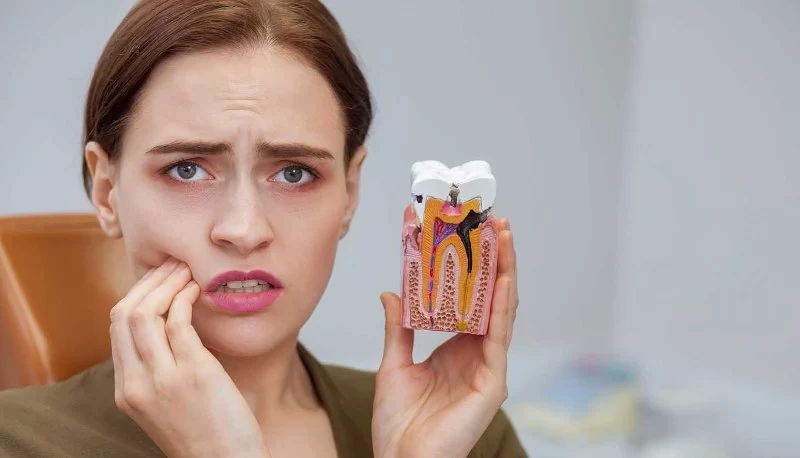
How to Prevent Gum Inflammation After Dental Surgery Care
- understanding-post-surgery-gum-inflammation - Understanding Post-Surgery Gum Inflammation
- why-inflammation-happens-after-dental-surgery - Why Inflammation Happens After Dental Surgery
- step-by-step-recovery-plan-to-minimize-swelling - Step-by-Step Recovery Plan to Minimize Swelling
- oral-hygiene-routines-that-make-a-difference - Oral Hygiene Routines That Make a Difference
- foods-and-habits-to-avoid-during-healing - Foods and Habits to Avoid During Healing
- real-case-lindas-experience-with-post-op-inflammation - Real Case: Linda’s Experience With Post-Op Inflammation
- when-to-consult-your-dentist-for-follow-up - When to Consult Your Dentist for Follow-Up
1. Understanding Post-Surgery Gum Inflammation
After undergoing dental surgery, whether it’s wisdom tooth extraction, gum grafting, or implant placement, gum inflammation is a natural part of the healing process. However, knowing how to prevent gum inflammation after dental surgery care can make a big difference in your recovery experience and avoid further complications.
2. Why Inflammation Happens After Dental Surgery
2.1 The Body’s Healing Response
Inflammation occurs when your body sends blood and immune cells to the surgery site to initiate healing. While mild swelling is expected, unmanaged inflammation can turn into infection or cause pain and delayed healing.
2.2 Common Triggers
Poor oral hygiene, smoking, or aggressive brushing are among the common culprits. Even stress can impact your immune system’s response, worsening inflammation.
3. Step-by-Step Recovery Plan to Minimize Swelling
3.1 The First 24 Hours
Apply a cold compress in 20-minute intervals to reduce swelling. Avoid rinsing vigorously or spitting, as this may disturb blood clot formation.
3.2 Days 2–7: Gentle Movement and Soft Foods
Switch to warm saltwater rinses to gently clean the surgical site. Stick to a soft-food diet—think mashed potatoes, smoothies, and soups—to avoid pressure on the healing gum tissue.
4. Oral Hygiene Routines That Make a Difference
Brushing and flossing might seem intimidating post-surgery, but a modified routine is essential:
- Use a soft-bristle toothbrush and avoid brushing directly on the surgical site for the first few days.
- Consider an antimicrobial mouthwash (alcohol-free) if prescribed.
- Clean your tongue and other areas of the mouth to prevent bacterial buildup.
For personalized tools and post-op dental kits, browse the care essentials offered by Dentistry Toothtruth. Their curated products are designed to support gentle, effective healing.
5. Foods and Habits to Avoid During Healing
5.1 Harmful Foods
Crunchy snacks, spicy foods, and citrus fruits can irritate the wound. Also, avoid drinking through a straw to prevent dry socket.
5.2 Lifestyle Factors
Smoking and alcohol are major risks for gum inflammation post-surgery. Even if temporary, reducing these habits can accelerate healing and decrease the chances of infection.
6. Real Case: Linda’s Experience With Post-Op Inflammation
Linda, a 38-year-old professional, had a dental implant placed and didn’t take her aftercare seriously. Within 72 hours, she noticed increased swelling and discomfort. “I thought it would heal on its own,” she admitted. After a return visit, her dentist diagnosed early signs of infection. With proper rinses, antibiotics, and switching to a better toothbrush, Linda was back on track in a week. “I now understand how critical small steps are,” she says.
7. When to Consult Your Dentist for Follow-Up
Persistent swelling after 5–7 days, pus, or fever may indicate a deeper issue. Regular check-ins ensure that healing is progressing properly. Don’t wait for pain to escalate—early intervention is key.
Healing from dental surgery doesn’t have to be stressful. With the right steps and reliable products from Dentistry Toothtruth, you can actively prevent gum inflammation and feel confident during your recovery.







 Children Dental World4.0 (1512 review)
Children Dental World4.0 (1512 review) Inspire Dental of Maine4.0 (297 review)
Inspire Dental of Maine4.0 (297 review) Woodbridge Dental Group and Orthodontics4.0 (265 review)
Woodbridge Dental Group and Orthodontics4.0 (265 review) MDS Dental Solutions, LLC0.0 (0 review)
MDS Dental Solutions, LLC0.0 (0 review) Fusion Dental Care4.0 (1116 review)
Fusion Dental Care4.0 (1116 review) Horton Orthodontics4.0 (426 review)
Horton Orthodontics4.0 (426 review) The Importance of Oral Health Education During Pregnancy for a Healthy Pregnancy
The Importance of Oral Health Education During Pregnancy for a Healthy Pregnancy Best Tips for Brushing Your Teeth Properly for Healthy Gums: Essential Techniques for Oral Health
Best Tips for Brushing Your Teeth Properly for Healthy Gums: Essential Techniques for Oral Health Why Skipping Dental Checkups Can Lead to Bigger Oral Health Problems
Why Skipping Dental Checkups Can Lead to Bigger Oral Health Problems Advantages of Porcelain Dental Restorations
Advantages of Porcelain Dental Restorations How Can Diabetes Cause Tooth and Gum Problems? Preventing and Managing Oral Health Issues
How Can Diabetes Cause Tooth and Gum Problems? Preventing and Managing Oral Health Issues Healthy Habits for Promoting Good Oral Health and Hygiene: Tips for a Healthy Smile
Healthy Habits for Promoting Good Oral Health and Hygiene: Tips for a Healthy Smile